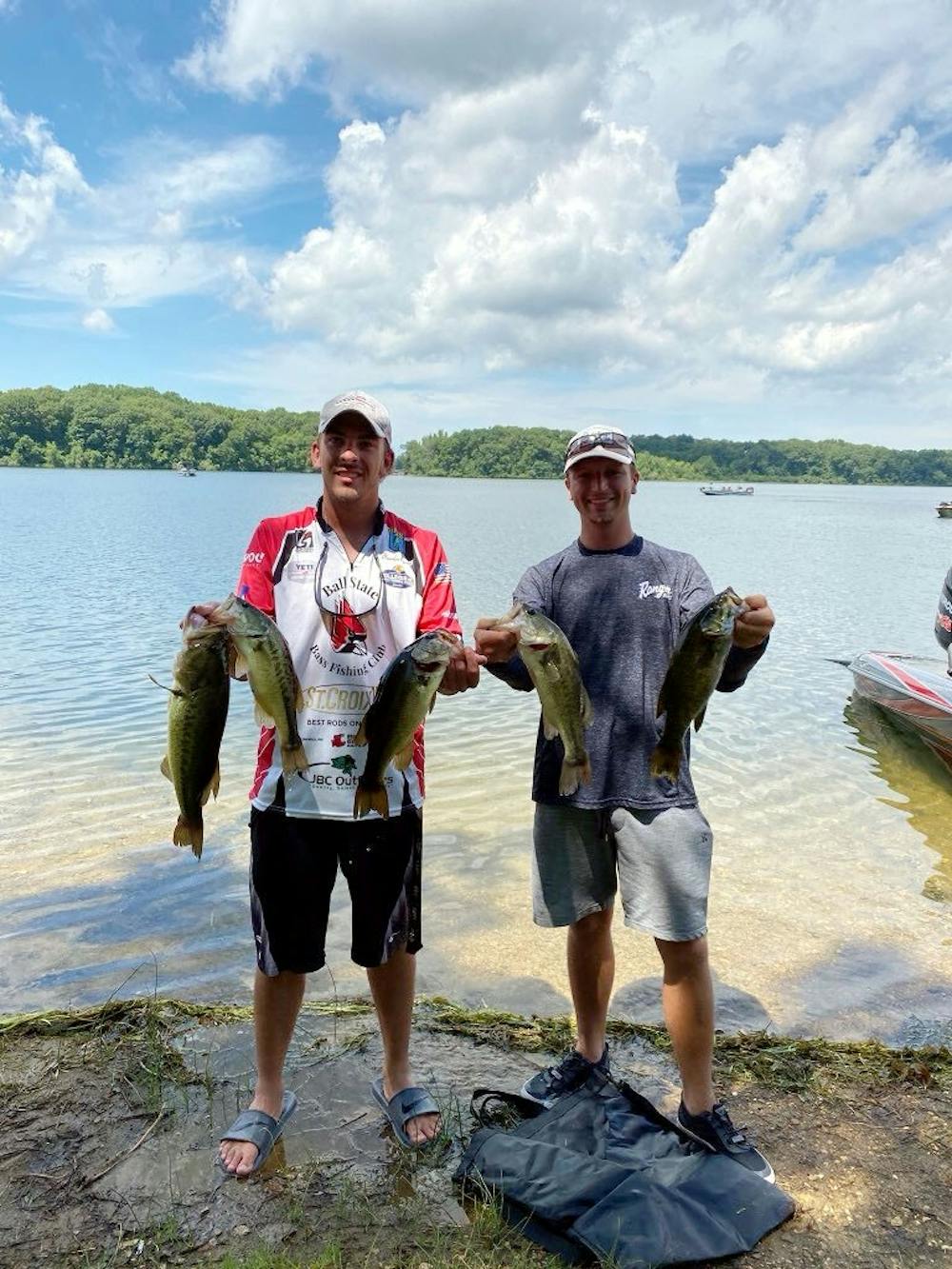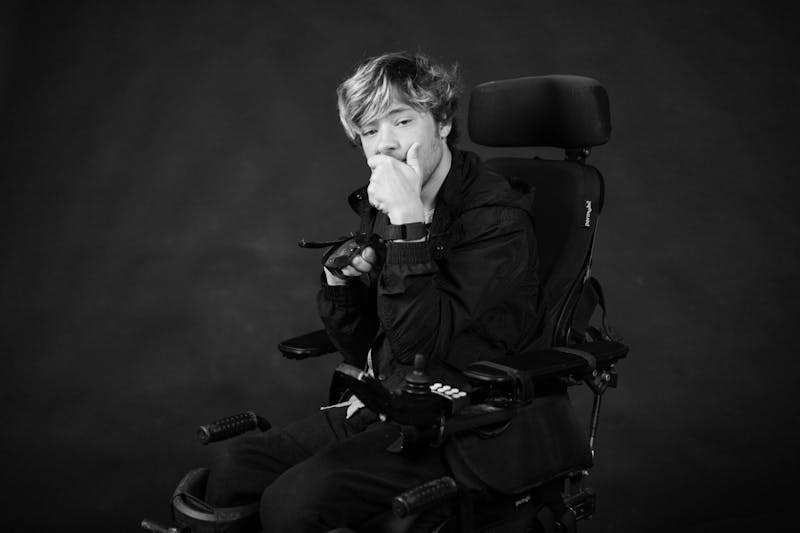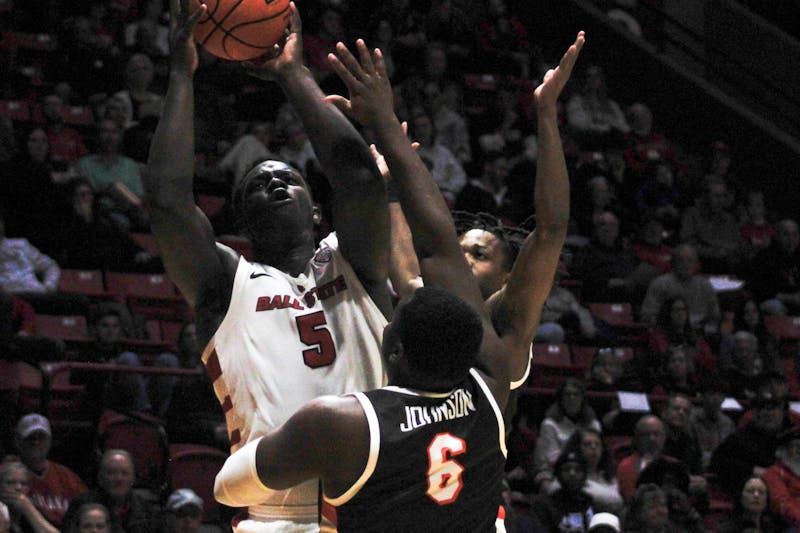The sky is clear, the water is blue, the weather is a comfortable temperature to be outside. Boats line the lake, each carrying passengers with the same goal in mind: catch as many fish as they can before the day is up.
Joe Howe, fifth year landscape architecture major and Ball State Bass Fishing Club president, said he has been fishing since he could hold a rod in his hand, so joining the Ball State club made sense to him.
“I joined a fishing club back in my hometown — Mishawaka — when I was 16,” Howe said. “When I came down to school here, I was looking into their fishing club and joined my sophomore year.”
The Ball State Bass Fishing Club is a group of about 10-15 students who have been involved in tournament fishing or are interested in trying the sport. Members can use their own boat if they have one, but if they don’t, Howe said the club has a “strong list of alumni and close contacts” who can take students to tournaments.
“We try to organize three or four tournaments in the fall, and then we try to organize as many as we can in the spring with the weather permitting,” he said. “It’s just about students going out and getting involved in tournament bass fishing.”
Kayden Effinger, sophomore business administration major, said tournaments last usually about one to three days and are eight hours each — going from 7 a.m. to 3 p.m. At the end of the day, competitors weigh in their five biggest fish and receive a score based on the sizes.
Members of the club fish at lakes near Ball State, such as Geist Reservoir, Summit Lake or Prairie Creek Reservoir, however, sometimes they will also travel to lakes in northern Indiana.
“We try to do everything in Indiana that we can,” Howe said. “It’s more just about getting people involved in the sport.”
Club members don’t have to compete in every tournament, and Howe said the club is “very low commitment,” and they just want to get as many people involved as they can. Since Howe has been a member, club members have recruited at the Ball State activity fair and at other events, such as the Indianapolis Boat Show.
However, Howe said during the COVID-19 pandemic, recruitment and getting the club together has been more difficult.
“From the spring of 2020 to the spring of 2021, we weren’t allowed to fish, so we got shut down for a while,” he said. “People graduated, and we weren’t having activities, so it was hard to get the word out unless you knew somebody in it.”

Now, as COVID-19 restrictions and concerns have loosened, Howe said things have gotten better and more people are gradually joining the club, such as Effinger.
Effinger attended Murray State University in Murray, Kentucky, his freshman year of college, but transferred to Ball State to be closer to family. At Murray State, he said there were more people involved in bass fishing, so it was a team rather than a club like Ball State.
“I knew if I wanted to fish in college tournaments and stuff like that, I had to be part of the Ball State club,” Effinger said. “I joined this year and then I am hopefully going to try in the next couple of years while I’m here to get a couple more people wanting to go and fish tournaments.”
Effinger began fishing when he was in seventh grade, when he said one summer he and his friends were bored and tried fishing. When he was in eighth grade, he got involved with tournament fishing.
When he transferred to Ball State, Effinger said he knew the school would have a fishing club because tournament fishing was growing in popularity, and as he becomes club president in the fall, he wants to get more students involved in the world of bass fishing.
“I really feel that in Indiana, fishing isn’t as big as it is at schools down south,” Effinger said. “I’m hoping by my senior year, maybe the school will look at us differently … I’ve done this since middle school and I’ve seen how it all works. I just hope the school can let students in the organization do what they want to do for it, because if we did that, that would be the best way for it to grow.”
As Howe graduates this spring, he said he thinks the club will be in good hands going forward and that the underclassmen will be able to recruit better with less COVID-19 concerns and restrictions. He also thinks it helps that they have gotten used to going to smaller tournaments, as more people join, they will be able to go to bigger tournaments and get more experience.
“I think that, for next year, in the fall and spring, numbers will go up and [there will be] more participation,” Howe said. “We’re going to get more of those overnight tournaments … I think [Effinger] is going to do a really good job of organizing things and being able to make sure things are running efficiently; I have a lot of trust in him. I think the future is looking pretty good.”
Contact Maya Wilkins with comments at mrwilkins@bsu.edu or on Twitter @mayawilkinss.





The Daily News welcomes thoughtful discussion on all of our stories, but please keep comments civil and on-topic. Read our full guidelines here.